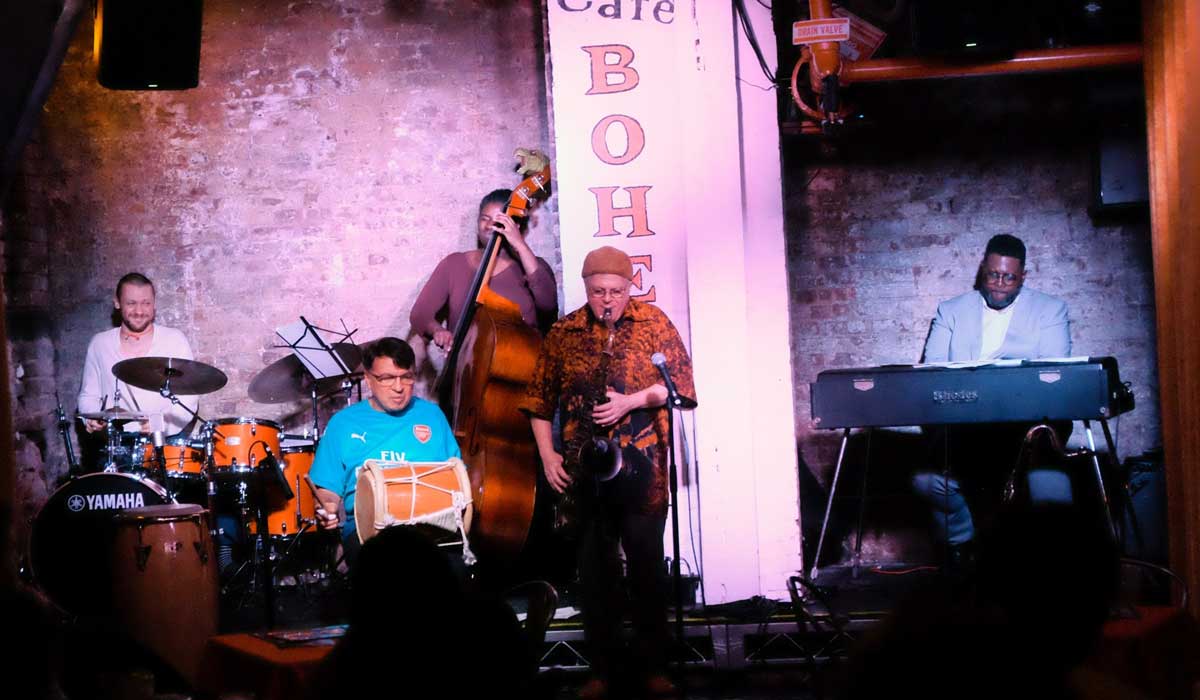
As an ethnomusicologist, Paul Austerlitz, a professor in the Sunderman Conservatory of Music and the Africana Studies Program, conducts research on music and its deep cultural roots. As a composer and musician in his own right, he creates it. These twin passions, intimately intertwined, have been the foundations for careers as both a scholar and as a jazz musician. Now, a sabbatical in New York City is affording him the opportunity to advance both.
A native New Yorker, Austerlitz gained exposure to a wide variety of music from around the world at a young age, and it was in the city that never sleeps that he learned how music can touch people and evoke powerful emotion. As a bass clarinetist, he uses his instrument as a tool for expression, and change.
“If you think about it, it’s obvious that music can actually change your whole world-view,” he said. “It can inform your identity, open your mind, and it can even expand your spirit.”
This expanded world-view is central to his scholarly work. At Gettysburg, Austerlitz teaches music, but also courses in the Africana studies program, where his main focus is on how African-based music has influenced other genres around the world.
“I have conducted research, for almost four decades now, in the Dominican Republic and Haiti,” Austerlitz said. “I focus on music used as entertainment, such the effervescent merengue, as well as music used in African-based ritual celebrations, which are believed to actually summon gods to earth.”
The focus of Austerlitz’s sabbatical year has been twofold: developing himself as a jazz bass clarinet musician, and conducting research on the music of the Dominican Republic. Austerlitz is currently residing in New York City, where he started a band called the Spirit Clarinet Orchestra, which consists of clarinets and bass clarinets accompanied by an Afro-Latin rhythm section. Last fall and winter, the Spirit Clarinet Orchestra performed once a month at the Zinc Bar, a classic jazz club where, in its earlier incarnation as Club Cinderella, luminaries such as Billie Holiday and Thelonoius Monk held court back in the 1940s.
While the impact of COVID-19 on the city has halted Austerlitz’s ability to share his art with in-person audiences, he has since shifted his focus to offering online concerts. His YouTube performances have won him global attention, especially in Latin American countries like Colombia, Venezuela, and the Dominican Republic.
In addition to pursuing his creativity as a jazz musician, Austerlitz is currently conducting research as a Distinguished Visiting Research Scholar at the Dominican Studies Institute (DSI) at the City University of New York.
“This remarkable organization is dedicated to utilizing academic research to promote the well-being of the large community of Dominican immigrants residing in the United States,” Austerlitz said.
At the Dominican Studies Institute, Austerlitz helped develop a website which centers around the history of Dominican music in the U.S. He also co-wrote a book, with John Bimbiras, called “Rethinking Latin Music in New York,” and is working on two research projects-in-progress: an article titled “Urban Maroons: Afro-Dominican Music and Transnational Black Liberation” and another book, “The Giants of Merengue: In their Own Words,” which highlights the history of Dominican merengue music through interviews with 12 major innovators in the genre.
As Austerlitz concludes his sabbatical, he looks forward to returning to Gettysburg College, and to sharing the outcomes of his creative and scholarly pursuits with his students.
By Kimberly Monitto ’20
Photo courtesy of Paul Austerlitz and Tequila Minsky
Posted: 06/11/20